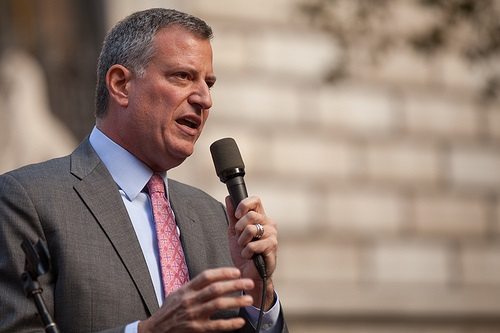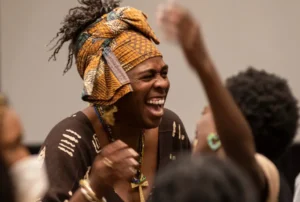
December 13, 2013; Wall Street Journal
New York City’s newly elected mayor, Bill de Blasio, generated a lot of attention last week when he met with President Obama and Vice President Biden at the White House to discuss, primarily, income inequality. The press picked up on de Blasio’s presence as a signal that he plans to take an active advocacy role on national issues such as inequality, poverty, and early childhood education.
Sign up for our free newsletters
Subscribe to NPQ's newsletters to have our top stories delivered directly to your inbox.
By signing up, you agree to our privacy policy and terms of use, and to receive messages from NPQ and our partners.
On the conservative side, there have been a number of politicians who have taken iconic political positions on the national stage, including Ted Cruz (R-TX), Rand Paul (R-KY), and Marco Rubio (R-FL)—all senators, governors such as Bobby Jindal of Louisiana, and various members of Congress. Iconic representatives speaking on the national stage on behalf of progressive issues haven’t really emerged to this point, in part because the nation’s leading progressive, so to speak, occupies the White House.
De Blasio’s leap to national visibility is in some ways a response to President Obama’s lame duck status, exacerbated by the president’s inability to move legislation on immigration reform, minimum wages, gun control, and other issues, not to mention the troubled rollout of national health insurance reform. The national stage is open to new voices on the progressive side of the political slate, especially as progressives evince increasing levels of disappointment in the president’s policies.
While de Blasio is getting lots of attention due to his landslide victory over a product of the Giuliani administration, he isn’t the only progressive to capture the attention of national progressives. Massachusetts senator Elizabeth Warren is being touted by some as a progressive alternative to the all-but-guaranteed presidential candidacy of Hillary Rodham Clinton. Warren gets great support from progressives for her willingness to take on the banks and espouse increasing Social Security. Suddenly, the mainstream Democratic establishment, no matter how liberal it might be, is being challenged by alternative voices. Writing for AlterNet and Salon, Thom Hartmann described “corporate Democrats” as “terrified” of Warren.
Supporters of the Massachusetts senator now announce, “We are from the Elizabeth Warren wing of the Democratic Party.” They may also soon announce themselves as from the de Blasio wing, too. Is it just appearances, or are de Blasio and Warren carrying a progressive message to Democrats the way Cruz and others have pulled the Republican Party hard to the right? Will nonprofits on the front lines of serving the poor inform de Blasio and Warren about what they need from our nation’s political leaders?—Rick Cohen












